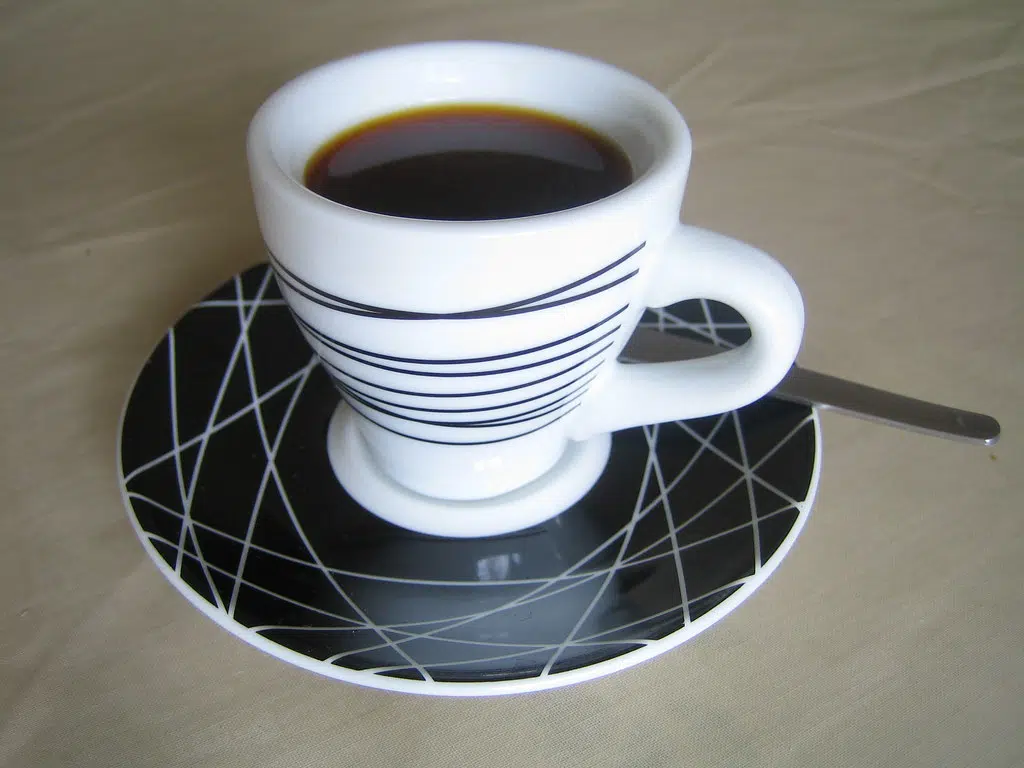An interesting case was recently decided in the Eastern District of Michigan involving trademark and other claims by a company selling “Detroit Coffee” against a company selling products under the name “Detroit Bold Coffee.” See Detroit Coffee Company, LLC v. Soup For You, LLC, 396 F. Supp. 3d 754 (E. Dist. Mich. 2019). The plaintiff alleged that “Detroit Bold Coffee” infringed upon and diluted its registered trademark. However, the court disagreed and awarded victory to the defendant dismissing all claims on summary judgment. Here is a quick summary of the trademark aspects of the case.
As one might expect, both companies involved in the case sell coffee and coffee-related products. The plaintiff, Detroit Coffee Company (“Detroit Coffee”), holds the senior trademark and is based in New York. Detroit Coffee began operating in 2003 and registered a trademark for “Detroit Coffee” for coffee and clothing merchandise in 2013. The defendants, doing business as Detroit Bold Coffee (“DBC”), began operating and using their trademark “Detroit Bold” to sell coffee in 2009. They registered “Detroit Bold,” “Detroit Bold Coffee Co.,” and “Detroit Bold Coffee Company DB” between 2014 and 2016. In 2016, Detroit Coffee sued DBC in federal court for various claims including trademark infringement.
In dismissing Detroit Coffee’s claims, the court essentially held that the two trademarks were not confusingly similar. Most infringement claims depend on some potential for confusion in the minds of consumers regarding the competing trademarks. See 15 U.S.C. § 1125. When considering potential confusion, the courts consider eight factors:
- Strength of the senior mark
- Relatedness of the goods or services
- Similarity of the marks
- Evidence of actual confusion
- Marketing channels used
- Likely degree of purchaser care
- The intent of defendant in selecting the mark; and
- Likelihood of expansion of the product lines.
The court conducted a detailed examination of the facts related to each factor and concluded that four of them weighed against any sort of consumer confusion (that is, weighed in favor of the defendant) and the other four were neutral. For example, regarding the third factor, the court examined the two competing marks and held that they were not similar. The court noted that, yes, both marks used the words “Detroit” and “Coffee,” but that was not the end of the analysis. An evaluation of confusion between competing trademarks requires that the TOTALITY of the marks be examined. From that perspective, the court noted that the trademarks used different fonts, colors, shapes, lettering and letter capitalizations. In addition, in the “Detroit Bold” trademark, the emphasis was placed on “Bold” — that word being much more prominent than the word “Detroit.” The opposite relationship was noted for the “Detroit Coffee” trademark. Overall, the Court held that the marks were very different and stylistically distinct. As such, this factor weighed against the idea that consumers would be confused.
Likewise, the court determined that the companies used different marketing channels. Marketing channels are relevant to infringement because, if the competing trademarks are rarely seen by the relevant consumers, then, there is no likelihood of confusion. This is why the trademark “Delta Airlines” can coexist with the trademark for “Delta Faucets.” They are different products sold in different markets via different marketing channels. Consumers will not be confused.
This can be true even if the competing companies are selling a similar product, like coffee. If the marketing channels are significantly different, consumers will not be confused because, again, it is unlikely they will see the competing marks. This is what the court concluded. Detroit Coffee’s business was generated from its website and through word of mouth marketing. By contrast, DBC sold its coffee products through Amazon, various other web-based retailers, through stores like Meijer grocery and at farmer’s markets. DBC conducted marketing through a marketing agency, social media events and through Detroit based newspapers.
Because of this, the court concluded that the marketing channels of the two companies did not overlap. As such, the likelihood of confusion weighed against the plaintiff and in favor of DBC.
Taking all eight factors together, the court held that no reasonable jury could conclude that consumers would be confused by the two marks. Because consumer confusion is at the heart of trademark infringement, a finding of “no confusion” was fatal to all of Detroit Coffee’s trademark claims. For more information or if you have questions about creating and registering a trademark, contact the trademark lawyers at Revision Legal at 231-714-0100.




